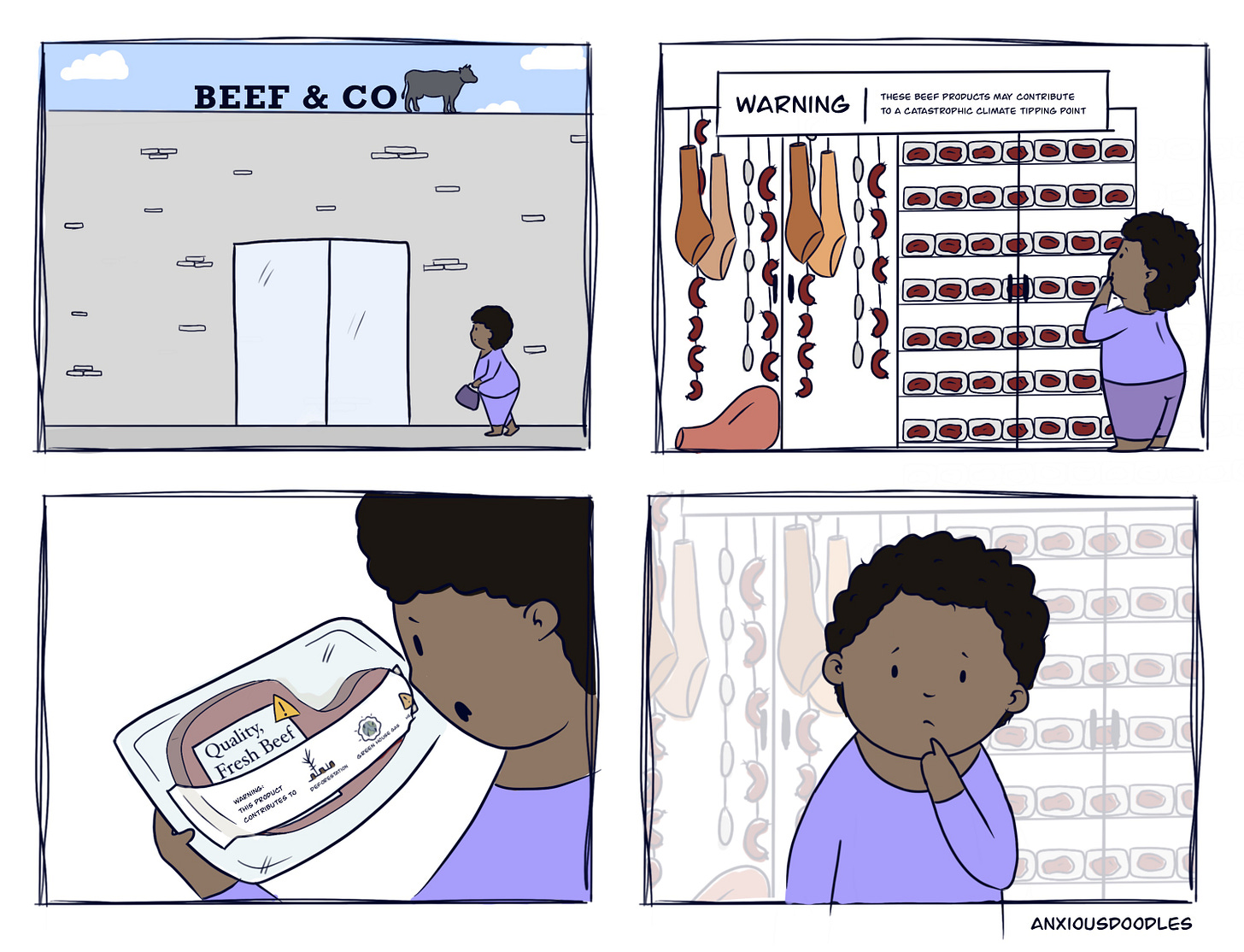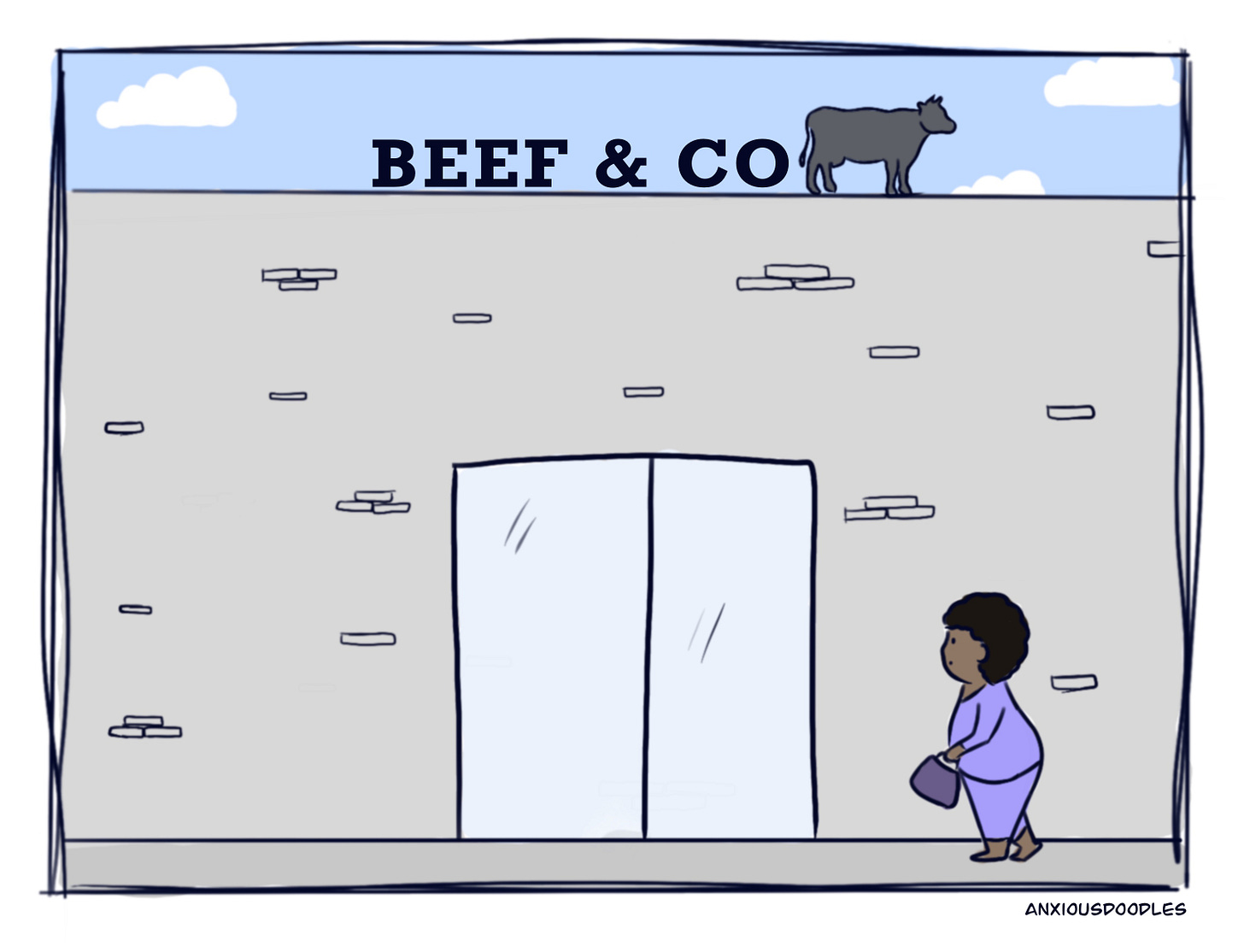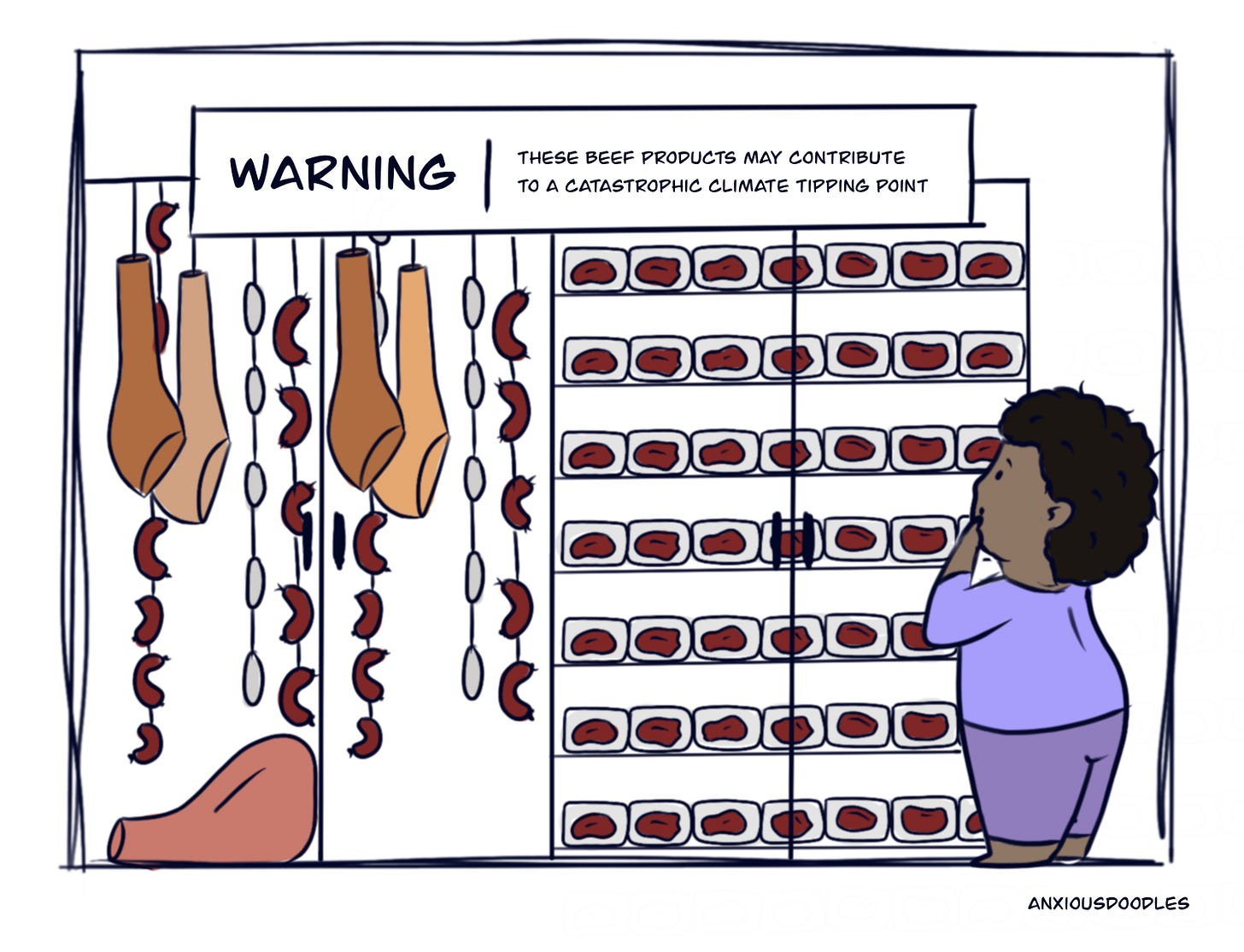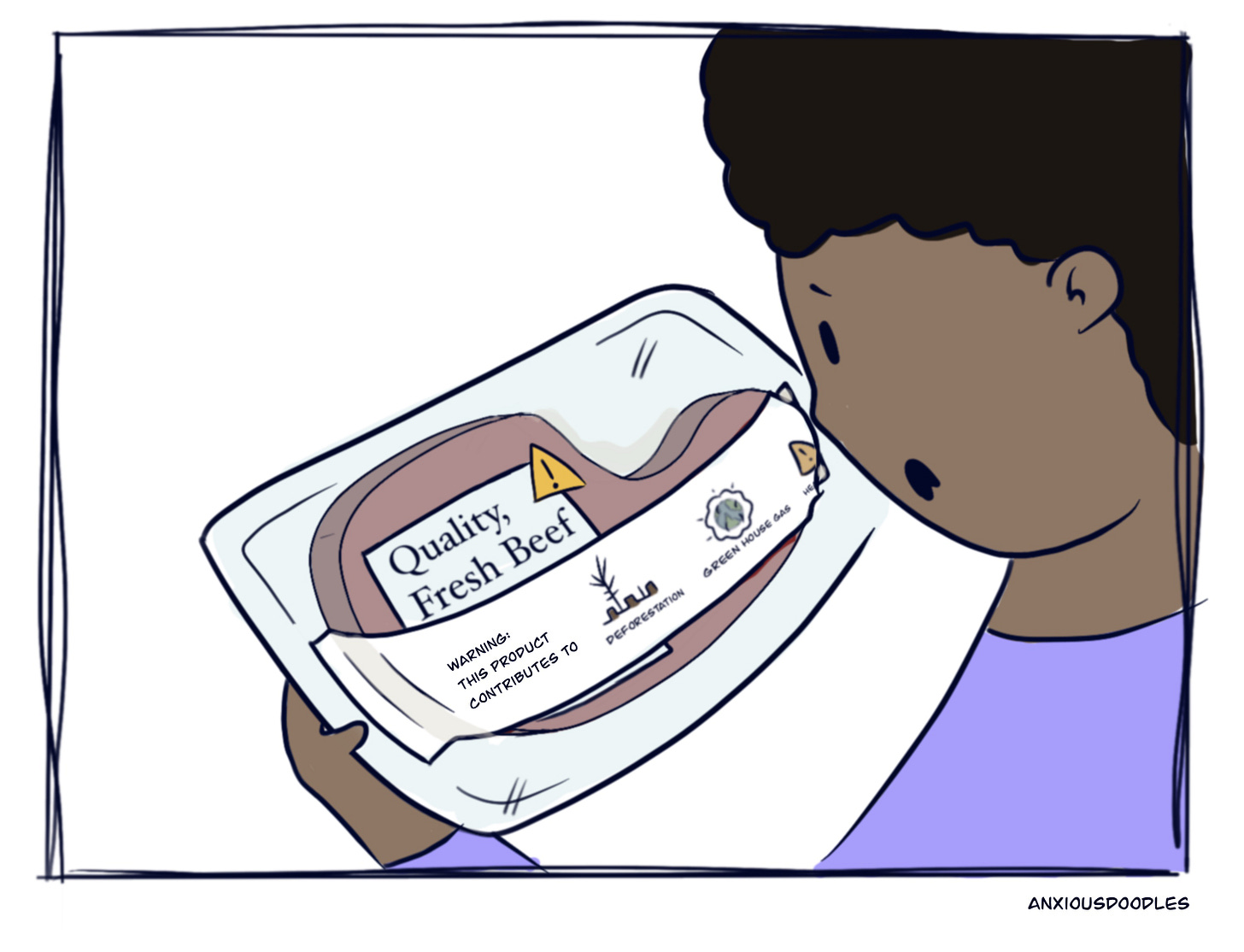The deforestation your beef provider doesn't want you to know about
If consumers were given the rights to know where their food came from and the supply chain of everything that it took to get it into their homes, would we still buy the same products as today?
There is a lot I don’t agree with when it comes to meat and by-product production. Simply put, I fundamentally do not believe anything can be produced at scale without being subject to abuse. In fact that goes for anything, and anyone. And, when I say ‘anything, anyone’ this includes fruit, veg, grains, seeds, soil, water, insects, fertiliser, runoff, waste, workers, consumers, … etc.
A report from Greenpeace in 2020 stated that industrial agriculture globally exacerbates the climate crisis, diminishes biodiversity, undermines public health, and disregards many of the rights of workers and communities. Of particular concern is the industrial meat industry, encompassing animal feed production, livestock farming, and processing, contributing significantly to these detrimental effects. (1)
Additionally, in a study published in the Global Environmental Change stated that “Every year, the world loses around 5 million hectares of forest. 95% of this occurs in the tropics. At least three-quarters of this is driven by agriculture – clearing forests to grow crops, raise livestock, and produce products such as paper.”
Our World in Data goes on to summarise this report “The expansion of pasture land to raise cattle was responsible for 41% of tropical deforestation. That’s 2.1 million hectares every year – about half the size of the Netherlands. Most of this converted land came from Brazil; its expansion of beef production accounts for one-quarter of its tropical deforestation.” (2)
(I will also add the concern for extended use of pesticides, antibiotics, and growth hormones administered to cattle and their feed in order to meet the growing demand for beef, since these chemicals also play a hazardous role in our climate crisis. (3))
The Greenpeace report also goes on to explain that “Forest destruction is not only wiping out habitats and species but increasing the risk of reaching a catastrophic climate tipping point: scientists warn that by failing to reverse deforestation we are ‘playing an environmental Russian roulette’.” (1)
There’s a lot to unpack here when we think about what goes into the chain of producing your beef products. But today I want to leave you with a thought… what if the stores you bought from, or the packing around your beef didn’t intentionally mislead you?
What if it wasn’t images of those inviting green pastures you see the cows apparently grazing on in the brands packaging, but instead, their tight cubicles without a blade of grass insight? … Would you think twice about your purchase?
Disclaimer: There's also a lot to be said about the agriculture industry as a whole. And, although I believe the cultural narratives around beef and dairy largely derive from the industries that mass produce them, there is also a lot of misleading information around mass production of any asset concerning quality, safety, impact on the soil and water, human rights and animal welfare.
1 – www.greenpeace.org.uk/wp-content/uploads/2020/08/Greenpeace_StillSlaughtering_Spreads.pdf
3 – www.panna.org/wp-content/uploads/2023/02/202308ClimateChangeEng.pdf








